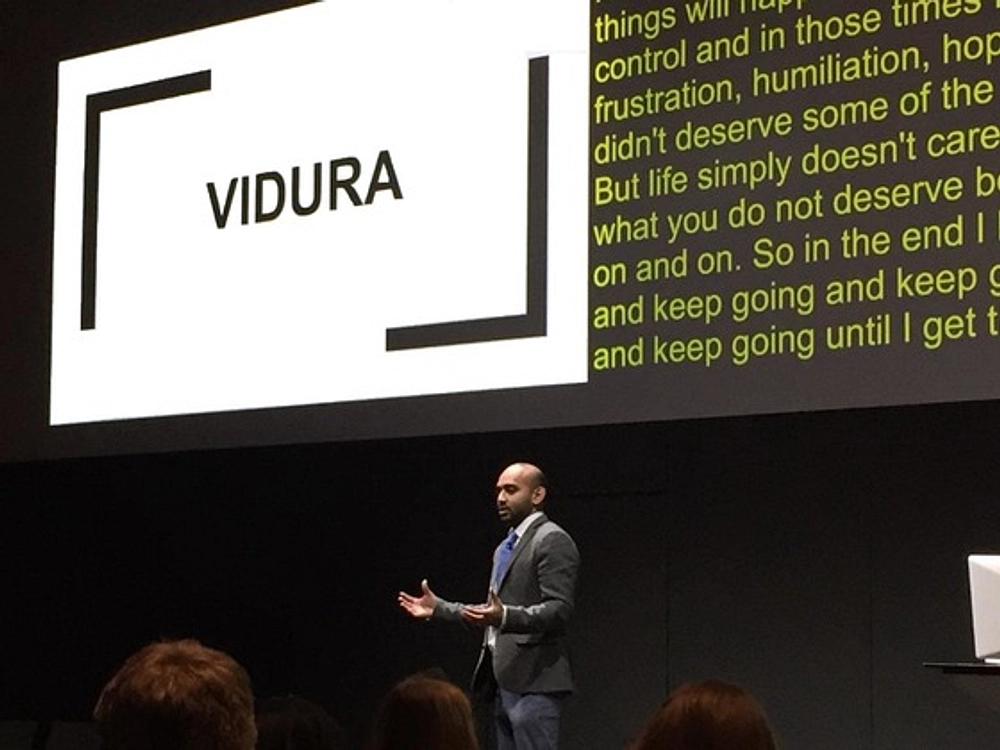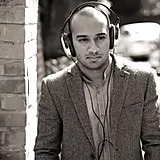Are you looking to become a professional speaker? Over the last three years, I have delivered hundreds of speaking engagements at both primary and secondary schools, universities and events. In this article, I'm going to share some tips on how you can become a professional speaker and share my journey with you.
Let me begin by saying that it is by no means an easy road to becoming a paid speaker. I worked hard for four years at university to become an engineer and roughly the same amount of time to become an artist. Becoming a speaker was no different. You will most likely have to speak for free at some events before you can begin getting paid. I like to think of becoming a speaker as a three-stage career process. First, learn, then develop and finally deliver.
 Let's discuss the first stage. I started my speaking journey at a central London Toastmaster club. It had around 20-30 people on a typical day. I first visited the club as a guest. During my first few visits, I didn't speak other than stand up and say my name. I joined as a member once I felt comfortable and performed a few club roles such as the evaluator or the timekeeper. I then did my ice-breaker speech, and over the next 3-4 months, I regularly delivered a speech at the club. One of the best things about Toastmasters is that after every speech audience will provide you with invaluable feedback. Members of the club will write down their feedback in the form of notes, and you can collect them at the end of the day. You will find that most members of the audience will pick up the same flaws in your speech. For example, I quite often got told that I spoke too fast. It was true, but I eventually learned to breathe, set myself on stage, and slow down. Take the feedback on board and master the basic skills such as confidence, self-belief, maintaining eye contact, keeping the audience engaged with stories and humour and keeping a good body posture. You don't have to start your journey at Toastmasters as there may be other speaking clubs near you, but I would recommend it as a stepping stone to the world of public speaking. Toastmaster membership (I paid £90 for six months) is also much cheaper than joining speaker programmes that can run into thousands of pounds. It is also a great place to meet people. You will create some memories to take away.
Let's discuss the first stage. I started my speaking journey at a central London Toastmaster club. It had around 20-30 people on a typical day. I first visited the club as a guest. During my first few visits, I didn't speak other than stand up and say my name. I joined as a member once I felt comfortable and performed a few club roles such as the evaluator or the timekeeper. I then did my ice-breaker speech, and over the next 3-4 months, I regularly delivered a speech at the club. One of the best things about Toastmasters is that after every speech audience will provide you with invaluable feedback. Members of the club will write down their feedback in the form of notes, and you can collect them at the end of the day. You will find that most members of the audience will pick up the same flaws in your speech. For example, I quite often got told that I spoke too fast. It was true, but I eventually learned to breathe, set myself on stage, and slow down. Take the feedback on board and master the basic skills such as confidence, self-belief, maintaining eye contact, keeping the audience engaged with stories and humour and keeping a good body posture. You don't have to start your journey at Toastmasters as there may be other speaking clubs near you, but I would recommend it as a stepping stone to the world of public speaking. Toastmaster membership (I paid £90 for six months) is also much cheaper than joining speaker programmes that can run into thousands of pounds. It is also a great place to meet people. You will create some memories to take away.
Now let's talk about the development stage. A local speaking club or a Toastmaster club is a great place to start your speaking journey. However, it is difficult to make it as a paid speaker through there. If you get far in one of the competitions with good material you may get some exposure, but ultimately you will have to develop outside of the club. Once you have mastered some of the basic speaking skills, I recommend visiting other speaking events to develop your skills further. Don't stagnate in one place. Over a year or so I travelled around the UK speaking at other Toastmaster clubs, story nights and dinners. I even tried comedy. Expose yourself to different environments and different types of events. I then shifted my attention to speaking in the education sector. Education is my passion. I did some voluntary speeches at schools to get experience while I developed my presentations and content for educational events. Discover which sector you would like to engage in and develop good valuable content. Find a niche topic to cover within your speeches. If you have a good story, use it and bring in your background to make it unique. People love real-life stories. What makes you different? I deliver a street-dance performance at the end of all my speeches. Practice delhttps://www.vsteamedu.com/uk/corporate/speakersivering your developed speeches at some events (even for free). As you develop into a professional speaker get rid of any lengthy notes. You can have a few bullet points written on a card in your pocket just in case you forget your material. You don't have to remember your speech word to word. Remember to record all your speeches so you can use them for marketing in the future. Additionally, gather testimonials as you go along and build connections. Make sure you have a business card in hand.
Once you have completed the first two stages of learning and developing you will probably be in a position to charge for your speaking services. You can also check out the Professional Speaker Association (I'm not a member of it, but it might be useful for you). Advertise your services on relevant marketing platforms. I advertise my services to schools on directories, magazines, social media and email marketing campaigns. I won't divulge into marketing in this blog as it depends on your target audience. Finally, go out and start delivering your polished content. Just know that those stages I mentioned will not end. It's a constant process you will have to maintain throughout your journey. Good luck!
You can explore our professional speaker here.

